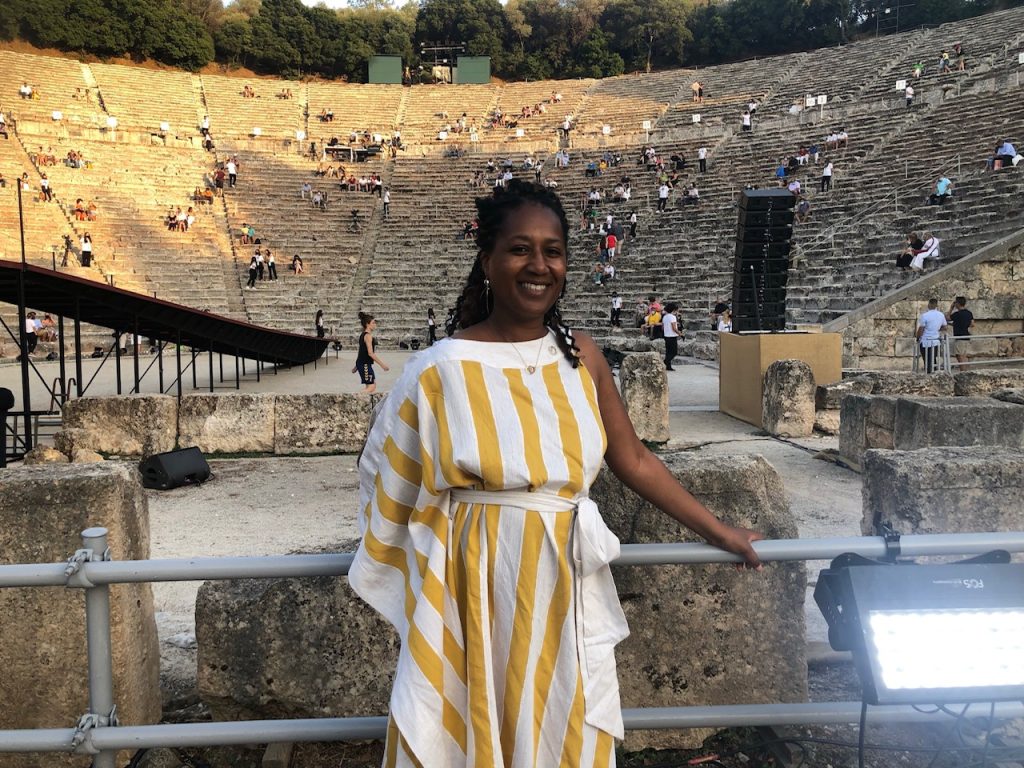From a life-long journey of learning about Ancient Greece, to a husband and wife wanting to enjoy taverna nights and dinner dances with fellow Greeks – the stories of why people study Greek vary.
The Greek Herald spoke with seven non-Greek students studying the Greek language as part of a course offered by the Greek Community of Melbourne (GCM) to discover their reasons for wanting to speak Greek.
Anne Holmes:
As a non-Greek, it often puzzles people when I tell them I am studying the Greek language. However, learning the modern Greek language became a natural progression in my life. Throughout my childhood, I was fascinated by archaeology and ancient history. At university I studied classics (including ancient Greek) and ancient history. In 1975, in preparation for research in Athens, I started learning modern Greek at the University of Melbourne. I have found many of us began learning Greek because of such studies.
Later, I continued my interest as a public librarian because of my work in multiculturalism and libraries. How could I establish Greek collections and programs without knowing about Greek literature, history and music? Other priorities intervened, but on retirement I decided that Greek was an interest I wanted to rekindle. Ten years later, I am still learning Greek and it has become an integral part of my life.

Paula Roberts:
I started learning the Greek language in 2014 before travelling to Greece for the first time in 2015. I felt having a basic knowledge of the language would help me as I drove around the country, deciphering road signs and interacting with Greek people.
When I came back to Australia, I continued with the classes. Over the past five or six years, I have studied with students who have also continued and had the same teacher – the lovely Eleni Dimitriou.
It’s a beautiful class and while we work hard to learn the language, we also have plenty of fun. Some aspects of Greek are very difficult for English speakers, particularly the cases and the verb system, but I love the language and enjoy the mental gymnastics it calls on. I also like comparing Greek to English and other languages I know and, like a five-year-old starting school, I still get a thrill writing the letters.
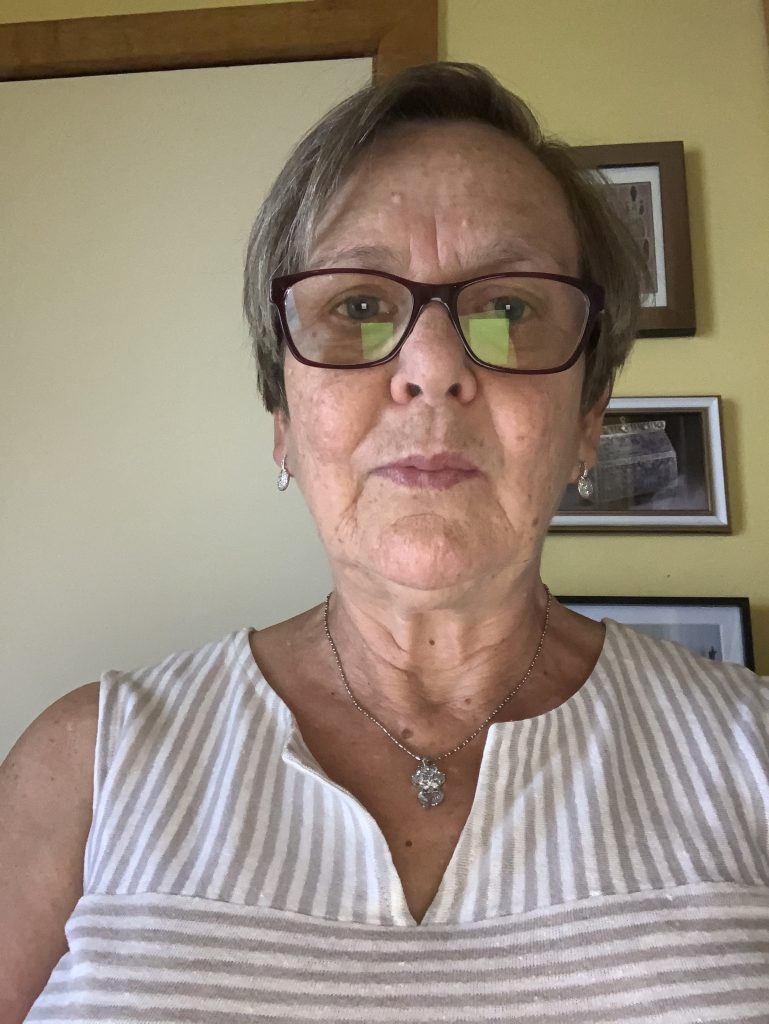
Melvyn and Valerie Forbes:
Valerie:
At first, I wanted to learn the Greek alphabet and decided to attend casual language classes for a semester and pick up some useful phrases. But I found the Greek language fascinating, especially for its influence on English. Seeing Greek origins in English words enriches my understanding of my own language. My language classes continued, off and on, until in 2019, when I started attending classes at the Greek Centre in Melbourne. I wanted a more formal approach to the language and it has offered me so much more, culturally and socially.
In the different learning situations and Greek dance classes I’ve experienced, with associated taverna nights and dinner dances, I’ve gotten to know many gregarious Greeks who are very supportive of anyone interested in Greek dance, music and language. Learning Greek has made me feel more connected to a community that is very welcoming.
Melvyn:
I’ve been retired for 14 years but I’m still very active. When my wife, Valerie, started attending Greek dancing classes at U3A, she also started to get invitations to Greek community events such as dinner-dance fundraisers. I went along too and found that I really like being around Greeks.
Since Valerie was studying Greek language at the time, and we both have mastered other languages, I thought I might have a go at learning Greek myself. And of course, there was that lure of a possible trip to Greece someday.
It’s not easy learning a new language in your 70’s. I use a variety of resources including group classes. In those classes, I’ve had the pleasure of delving into the etymology of many Greek words, a personal interest of mine. Over time, I’ve also started to experience the gratification of being able to make sense of this language and feel comfortable in it.
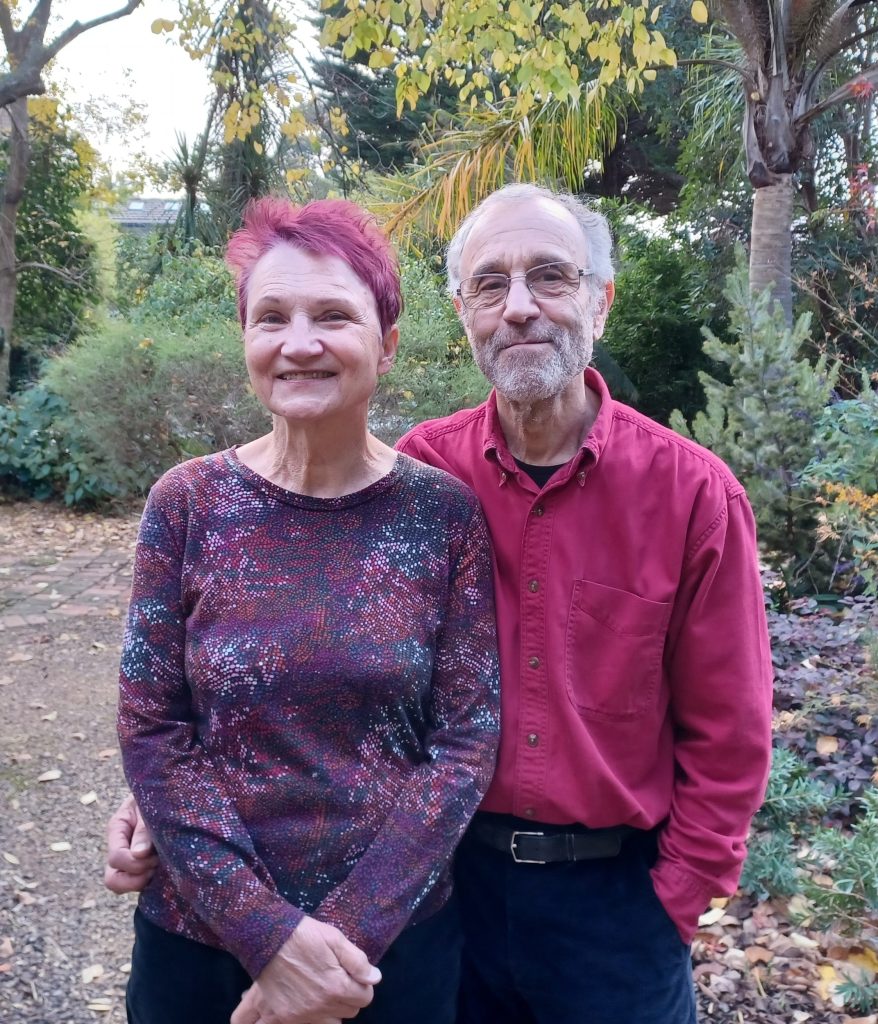
Valerie Rendle:
Many years ago, I was married to a Greek man and learned some Greek to communicate with his family. After we divorced, I didn’t speak or hear Greek for years and forgot most of what I had learned. Nevertheless, I planned at some stage to spend time as a volunteer counsellor working with refugees in Greece, and for this I would need to improve my Greek.
The unexpected opportunity to study Greek came up early last year. I stopped working due to long Covid and while I was stuck home, I began studying with the Greek Community of Melbourne’s Greek language course.
The structure of the courses works well as I could start at a lower level while getting used to the language again and then move to a higher class. It’s given me confidence to communicate in Greek and be able to sit the accreditation exams in the future.
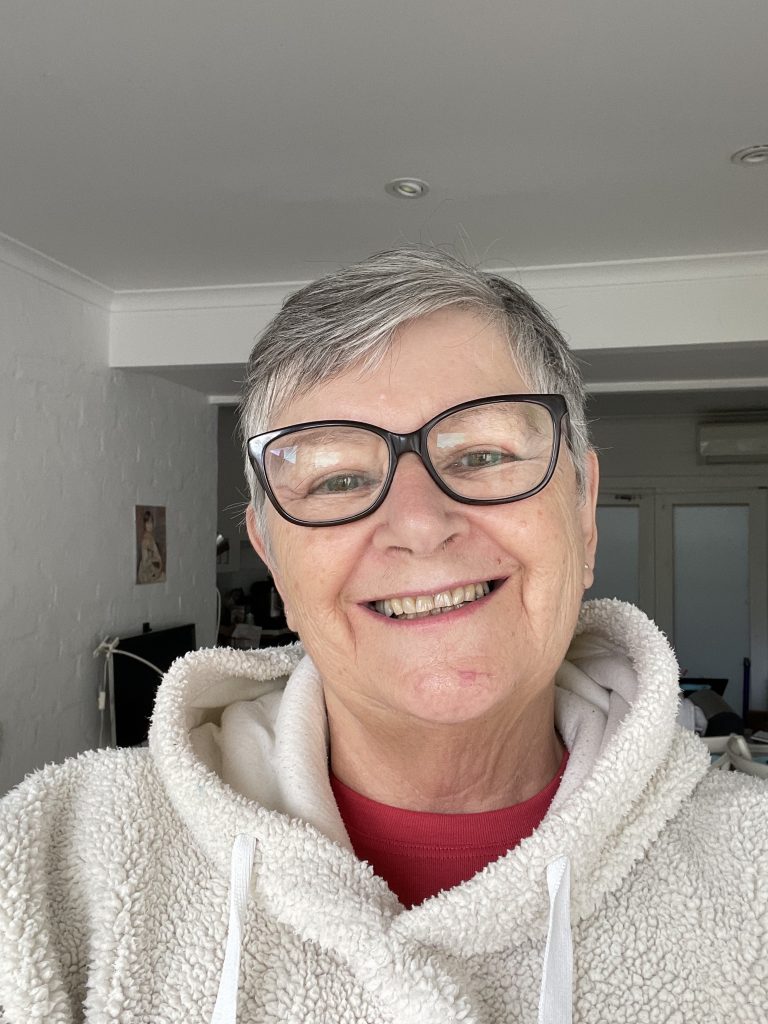
Sam Martin:
My partner, who has Greek heritage, and I have travelled to Greece a few times, and love Athens and the Greek culture. We would like to live and work in Greece, so we felt learning the language was essential.
I also enjoy studying philosophy and economics and find the works of Castoriadis and numerous left-leaning political-economic movements in Greece inspiring, especially considering unjust, antidemocratic treatment of the nation at the hands of the Troika. I want to be able to deeply immerse myself in the culture, ideas and history of Greece and learning the language is a gateway to this.
The Greek language course has given me a deeper appreciation for the beauty of language and learn how to express ideas in ways unavailable in your native tongue. The course has been a great way to meet new people, especially our instructor Alexandros, who is a legend, and always supportive, enthusiastic and personable. With any luck, one day I’ll be able to understand my favourite Greek rappers or keep up when watching the Greek news.
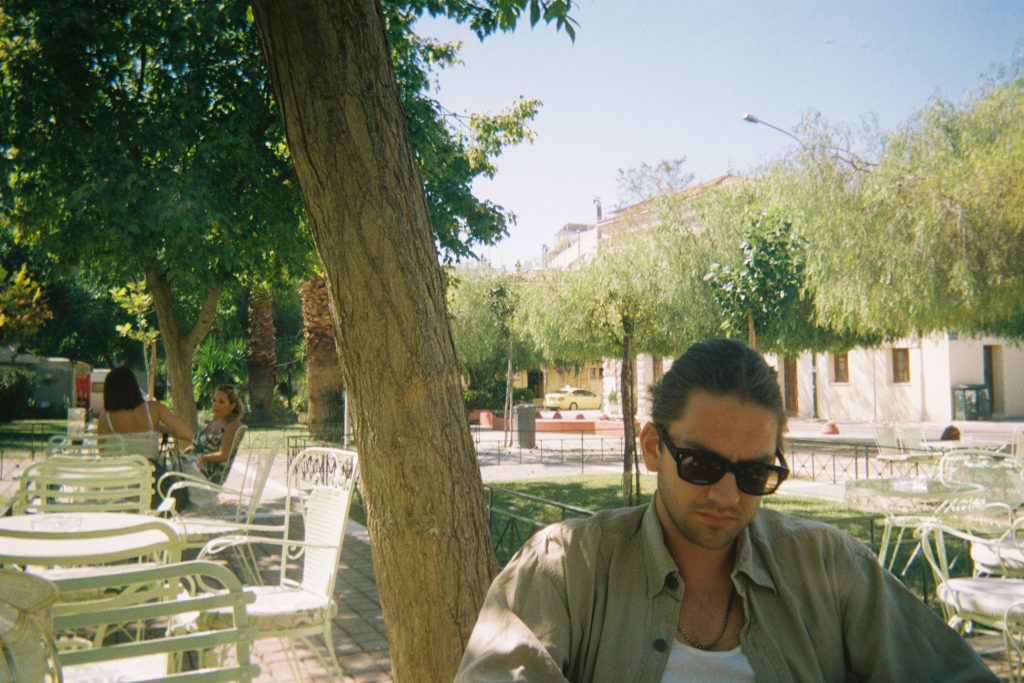
Erica Myers-Davis:
It’s a long story but the short version is I found myself randomly on a small Greek island during the COVID restrictions unable to return to Australia. Within three hours of setting foot on the island I was ‘adopted’ by a local family who housed, fed and entertained me. A two-week break ended up being a three-year affair.
While the family speaks English well, I felt embarrassed I couldn’t speak Greek, especially among the older relatives who don’t speak English. I started learning the language online and with a local teacher and when I returned to Australia, I continued at the Greek Community of Melbourne’s language school. The in-person and online classes with Elena, who is an amazing teacher, and my fellow students gave me confidence in my speaking and deepened my love for and of Greece.
Now a Greek resident, I live between Poros (Attica) and Melbourne—like Demeter living in a perpetual Spring and Summer.
